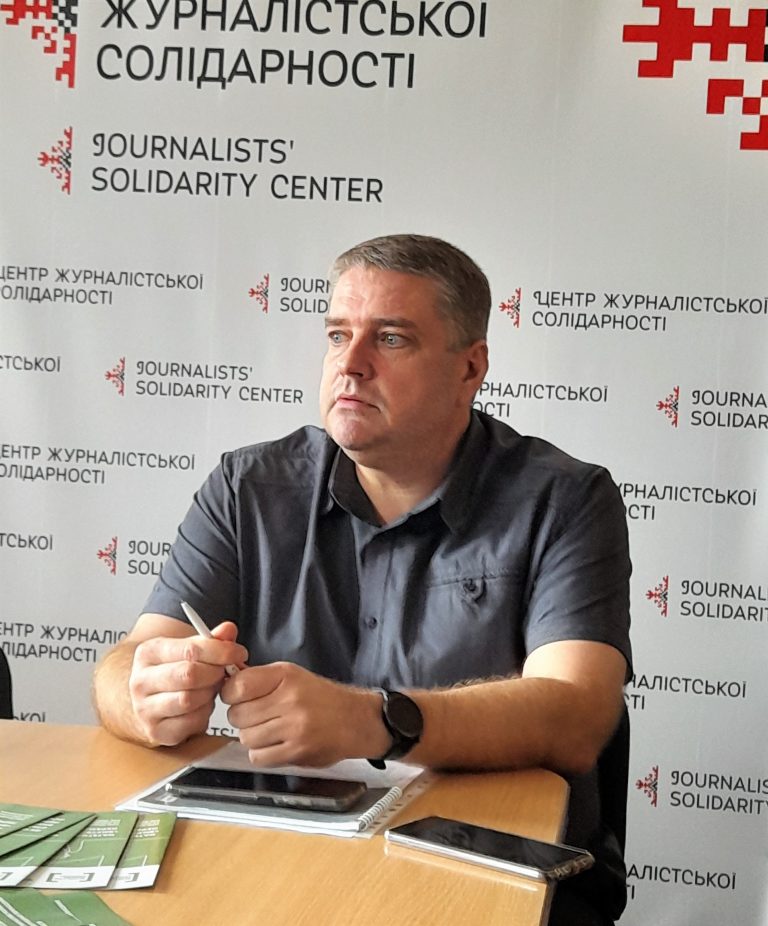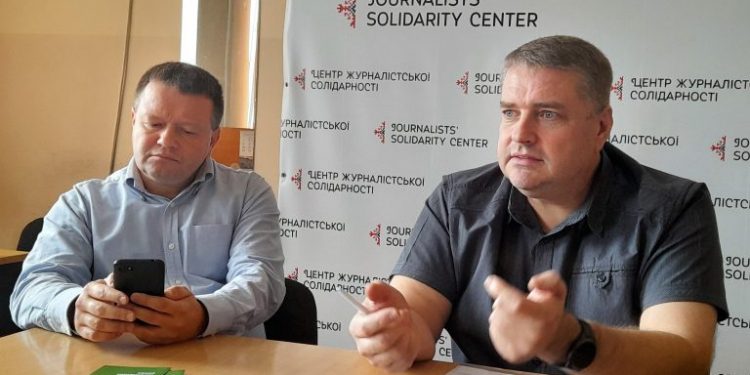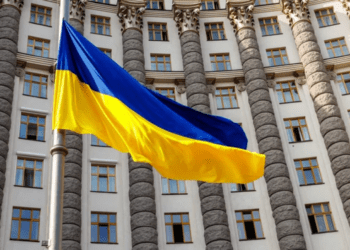The procedure for preparing and submitting documents for re-registration/registration of media under the Law of Ukraine On Media was discussed during practical offline training at the Chernivtsi Journalists’ Solidarity Center (JSC) of the National Union of Journalists of Ukraine (NUJU).
Oleksii Ivanov, the senior lawyer of the Chernivtsi JSC engaged in providing free secondary legal aid, talked with representatives of local print media about the specifics, terms, and possible responsibility of the media for possible offenses.
The Law introduces the concept of online media into the legislative field and provides that newspapers may register voluntarily. At the same time, those mass media that have already registered, in order to maintain their registration, must re-register after Law takes effect, i.e., until March 31, 2024. However, they may continue to work, but as unregistered media.
To register, online media and newspapers must submit an application to the National Television and Radio Broadcasting Council using the form established by the regulator and include the following information:
For legal entities;
- a) identification data;
- b) address at which editorial control is carried out if it does not coincide with the address of the location (for entities in the field of audiovisual, print, and online media);
- c) contact data (phone number, e-mail);
- d) legal entity head’s full name
- e) ultimate beneficial owner (if available)
If the site plans to register an individual entrepreneur, the following information must be specified in the application:
- a) identification data;
- b) place of registration or provision of service, contact details (phone number, e-mail)
The Law provides for the differentiation of sanctions against registered and unregistered media. In particular, registered media can receive a fine for five minor violations within a month, while unregistered media are fined for three violations. For example, failure to indicate initial data or provide information at the request of the Council is considered a minor violation.
A court-ordered ban on unregistered online media can come after the third gross violation, while the threshold for registered ones is four violations. For example, spreading information about the war between Ukraine and the Russian Federation as a civil conflict will be considered a gross violation.
Another amendment to the Law was the possibility of hearing cases against the media in court within two days. It is noted that expedited trials against the media will only take place if there is a threat to national security and to prevent riots. Time will tell whether this norm will actually be applied in exceptional cases.
At the same time, the transitional provisions of the document establish that within a year after the Law takes force, i.e., until the end of March 2024, the Council will issue only prescriptions for most violations, i.e., without fines and judicial and extrajudicial restrictions. Violations related to the “dissemination of unreliable materials regarding armed aggression and actions of the aggressor state (occupier state), its officials, persons and organizations controlled by the aggressor state (occupier state) are not covered by the amnesty if, as a result, these are calls for violent change, the overthrow of the constitutional system or violation of territorial integrity, incitement of enmity or hatred.”
Another novelty of the Law is joint regulation in the media field with the participation of the Council and representatives of the media sphere. For membership in the joint regulatory body, it will be necessary to pay membership fees, the amount of which will be determined by the board of the joint regulatory body. Media workers on the market for less than three years cannot be members of a joint regulatory body.
Among the powers of the joint regulatory body is the development of codes (rules) for disseminating information. They must be approved by the Council.
“Theoretically, the co-regulatory body influences the issuance of fines and other sanctions against the media. However, the Law allows you to ignore the performance of the body. The Council can do the same with other developments related to issues of media regulation. That is, to multiply by zero the very idea of co-regulation,” noted Oleksii Ivanov.
Call the Chernivtsi JSC by dialing 068 286 3706 (Volodymyr Bober, the Chernivtsi JSC coordinator). The Center’s address is 96 Nezalezhnosti Avenue.

ABOUT JSC
The Journalists’ Solidarity Centers is an initiative of the NUJU implemented with the support of the International and European Federations of Journalists and UNESCO. The initiative is designated to help media representatives working in Ukraine during the war. The Centers operate in Kyiv, Lviv, Ivano-Frankivsk, Chernivtsi, Zaporizhzhia, and Dnipro and provide journalists with organizational, technical, legal, psychological, and other types of assistance.
ABOUT UNESCO
UNESCO is the United Nations Educational, Scientific, and Cultural Organization. It contributes to peace and security by promoting international cooperation in education, sciences, culture, communication, and information. UNESCO promotes knowledge sharing and the free flow of ideas to accelerate mutual understanding. It is the coordinator of the UN Action Plan on the Safety of Journalists and the Issue of Impunity, which aims to create a free and safe environment for journalists and media workers, thus strengthening peace, democracy, and sustainable development worldwide. UNESCO is working closely with its partner organizations in Ukraine to provide support to journalists on the ground.
The designations employed and the presentation of material throughout this digest do not imply the expression of any opinion whatsoever on the part of UNESCO concerning the legal status of any country, territory, city, or area or its authorities or concerning the delimitation of its frontiers or boundaries.
The authors are responsible for the choice and the presentation of the facts contained in this digest and for the opinions expressed therein, which are not necessarily those of UNESCO and do not commit to the organization.
Chernivtsi JSC information service

 THE NATIONAL UNION OF
JOURNALISTS OF UKRAINE
THE NATIONAL UNION OF
JOURNALISTS OF UKRAINE
















Discussion about this post